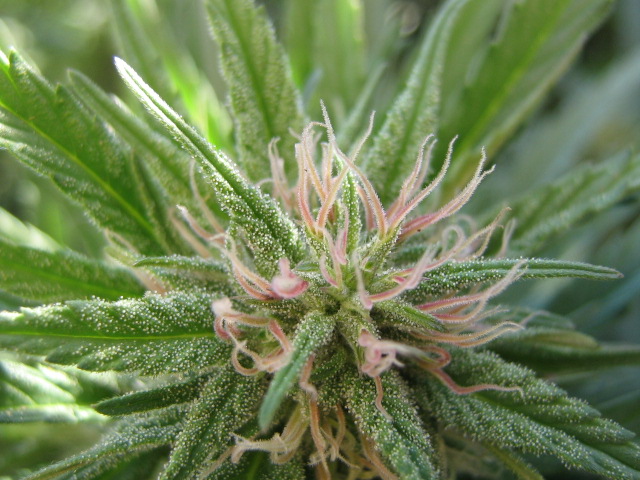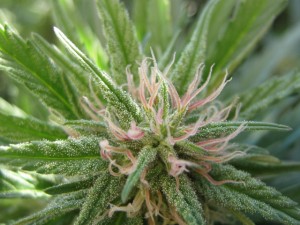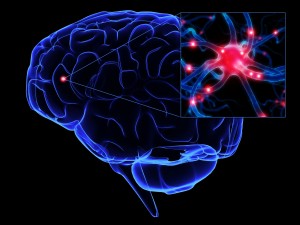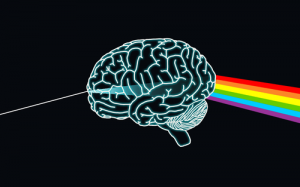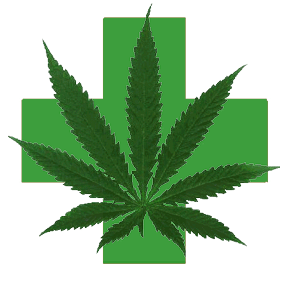Cannabis…just say ‘know’
Cannabis is the most popular illicit substance in the world, and prior to aspirin was used in as the primary pain reliever in the Western World. It is non toxic, and is near impossible to overdose on, and deaths are extremely rare (and linked to pre-existing conditions). Tetrahydrocannabinol (THC), the key psychoactive compound of cannabis, has been found to be non toxic even following chronic use over the long term. The plant has many potential medical applications and an ever expanding base of research to support its use in medicine. Cannabis has a very long history of medical use, and at least 85 different cannabinoids have been identified in the plant so far.
One of the interesting things that makes cannabis unique from other isolated medicines or pharmaceuticals is that there are a number of these cannabinoids with biological activity, and the total sum of their effect may exceed that of any of the individual compound acting alone.
Cannabis Chemistry
Sativa plants produce a higher ratio of THC to cannabidiol (CBD), producing a more cerebral, stimulating high, and for this reason are better suited to daytime medical use. While THC is the primary psychoactive compound in cannabis, CBD is the primary non psychoactive compound in cannabis and is a mild analgesic and antioxidant. While it isn’t psychoactive, it does display anti anxiety effects and can decrease social isolation. Many cannabis strains have been bred to be high THC and very low CBD, which competes for the same receptors in the brain. Indica plants are more CBD dominant and more sedative in effect, and tend to be preferred for evening or night time use, and are supportive of sleep. There has been much interbreeding between the two species, to produce varying ratios of genetics and THC/CBD rations, with some relatively balanced 50/50 strains. Higher CBD strains are less likely to induce anxiety than higher THC strains, with CBD balancing out the effect of the THC and having its own anti anxiety effects. The genetics of particular strains is responsible for the potency and THC/CBD ratio of the plant, although this is also influenced by harvesting time.
Hashish tends to have a much higher CBD/THC ratio than most cannabis does; the resin rich indica plants are known to produce more CBD and resin than sativa strains. Choosing the right strains is an important consideration if cannabis is to be used medicinally. People tend to prefer cannabis to pure THC, with the other cannabinoids such as CBD having a balancing effect on the psychoactive effect of the plant.
Israel is at the forefront of medicinal cannabis research, and in stark contrast to the THC dominant strains, high CBD strains have been developed with only trace amounts of THC. These strains are in increased demand and allow people who are seeking the medicinal properties of CBD to use cannabis without getting stoned and so go about their day to day lives clear headed.
Cannabis may have a positive effect on neurogenesis, or growth of new neurons in the brain. Studies with a synthetic cannabinoid closely related to THC in rats found an increase in hippocampal neurogenesis, with associated anti anxiety and antidepressant behaviour. When this process was blocked via X-irradiation, neurogenesis was blocked and the anti anxiety behaviour was no longer observed, suggesting a link between the two. Cannabis has been found to protect the white matter of the brain from the neuro-degeneration caused by excessive alcohol in both rodents and humans, and so may protect the brain of drinkers to some degree. Much cannabis has been bred to be high THC and low CBD, which competes for the same receptors in the brain. CBD itself has been implicated with neurogenesis and as a neuroprotective agent. It is a molecule of increasing medical interest; as well as being a powerful antioxidant; it is an anti psychotic compound that balances out the effects of THC. CBD containing strains may be preferable with regards to brain health, and to get the most out of cannabis, vaporizing and consuming it orally are the most healthy and efficient methods.
Cannabis has been suggested as much safer substitution treatment for alcoholism and cocaine and opiate addiction. Recent research has found CBD to markedly reduce cigarette consumption in smokers, and it may reduce cravings with other substances.
Cannabis is being investigated for a potential treatment to restore brain function after traumatic injury. It may work to precondition the brain against damage from brain injury induced by things such as lack of oxygen, seizures or toxic drug exposure, and increases levels of endogenous neuroprotective compounds and growth factors. It could be used as a preventative medicine for conditions such as epilepsy and prior to open heart surgery to buffer the brain from injury. Other cannabinoids have been found to have neurotrophic properties. Cannabichromene has been found to enhance survival rates of neural stem progenitor cells as they differentiate into different types of neuron.
Cannabis & Creativity
When ingested in some form, cannabis appears to increase hyper-priming, or the ability to make connections between seemingly unrelated concepts, and allows one to transcend ordinary thinking patterns and see remote associations. It can also increase verbal fluency, and it relaxes and lowers inhibition, turning off one’s “inner-editor” and allows thoughts and feelings to flow more freely. Cannabis also blurs the line between people’s senses and enhances people’s capacity to experience wonder and awe. Creativity however is a very tricky thing to quantify with the scientific method. However numerous musicians, artists and people working in creative industries have found cannabis a source of inspiration.
A number of scientific and technological visionaries used cannabis. The theoretical physicist Richard Feynman, palaeontologist Stephen Jay Gould, integrative medicine founder Andrew Weil and psychologist Susan Blackmore all dabbled with cannabis (her first experience with cannabis inspired her to pursue a career in parapsychology). The preeminent astrophysicist and cosmologist Carl Sagan also used cannabis and advocated its use for the enhancement of intellectual, aesthetic and sensory pursuits. Steve Jobs was known to have experimented with LSD and cannabis, and found his experience to be of great personal value. On the subject he said “The best way I would describe the effect of the cannabis and the hashish is that it would make me relaxed and creative.”
Cannabis & Health
Cannabis appears to carry much less risk to the lungs than tobacco, despite containing similar amounts of tar. It can also act as a buffer against the neurotoxic and carcinogenic effects of alcohol. THC appears to have a soothing effects on lung tissue and seems to buffer the lungs against the more irritating and mutagenic effects of tobacco. Cannabis is also a bronchodilator, opening the air ways whereas tobacco constricts them, and is well known for being a highly effective expectorant, aiding in the clearance of the airways following smoking. In fact studies have suggested cannabis may be effective in the treatment of lung cancer.
It is important to demand or grow organic cannabis. Recent research has indicated that a vast proportion of any pesticide residues on cannabis will be inhaled when smoking, and this is a direct route into the blood stream that bypasses the protection afforded by the stomach and liver. Further adding to the risk is that there are no controls over what is sprayed onto cannabis when compared to vegetable crops. Thus having a source of organically grown cannabis should be of paramount importance to anyone who wishes to use it. Curing the bud will improve flavour and quality of the smoke, as magnesium in the plant material breaks down, so storing your bud in glass jars after drying is recommended.
To gain the most benefit from the cannabinoids in cannabis and utilise its healing it powers, it is healthier and more efficient to consume the cannabis in edible form, or vaporize it. Cannabinoids are fat, and a lesser extent, alcohol soluble, so consuming them in a recipe with butter or plant oils is recommended for efficient use. Over 50 carcinogens have been found in cannabis smoke. While no link between cannabis and lung cancer have been found, the act of smoking and inhaling tar can increase the chances of suffering from bronchitis. Vaporizers heat the cannabis up to a temperature that vaporizes the active cannabinoids, but without combustion and many of the substances this produces, so avoiding tar, carbon monoxide and carcinogens such as polyaromatic hydrocarbons and benzene. Lung soothing terpenoids in the cannabis are also converted into vapour. A number of studies have found vaporizers to be a highly effective and healthy way of using cannabis. Switching to one can also ease symptoms in someone who is suffering from impaired respiratory function. With vaporizing, the amount of cannabis required is less than with other methods, as very little is wasted and the route of delivery is efficient, so in the long run it saves money. Thus while vaporizers aren’t always the cheapest items, in the long run they are a smart investment for your lungs and wallet.
Hemp oil is one of the most nutritious of all plant oils and is compromised of 80% essential fatty acids. It contains all the essential fatty acids required by humans, and Omega 3 and Omega 6 oils in the appropriate ratio, meaning it can be used in the long term without risk of any fatty acid deficiencies.
Cannabis & Medicine
Recent research has indicated that cannabis (or the activation of the brain’s cannabinoid system) releases antioxidants. These have a cleansing effect, and act to remove dead cells and increase efficiency of mitochondria, which act as the power houses in all cells, fueling the fires of respiration in the body. This is of interest as a number of brain disorders are associated with inflammation, including neurodegenerative diseases such as Parkinson’s disease and Alzheimer’s disease as well as cognitive decline with age, so cannabis may be neuroprotective in these instances. A scientist leading research into finding a substance to reduce brain inflammation and restore cognitive function in aging rats found that cannabinoids were the first compounds he had encountered that were effective in over 25 years of searching. Cannabis may offer treatment for a wide array of oxidation associated diseases, including inflammatory, autoimmune, ischemic disease and may even show promise in preserving brain function into old age and protect against cognitive decline. The neuroprotective properties of cannabinoids may have particular application for treating neurological damage following strokes and with HIV related pain and dementia (the only drug known so far to relief symptoms in neuropathic pain associated with HIV). Non psychoactive cannabinoids such as CBD may be particularly important with regard its extreme low toxicity.
Cannabis has been found to be effective in treating a vast number of conditions, and new research findings are coming to light all the time. Unlike many pharmaceuticals, cannabis use is not associated with unpleasant side effects. Cannabinoids may treat or provide relief in symptoms from cancer, Tourette’s Syndrome, seizures, migraines, glaucoma, premenstrual syndrome, irritable bowel syndrome, ADD and ADHD, diabetes and have established effects in the treatment of nausea, vomiting, weight loss, insomnia and lack of appetite, with research ongoing looking at its medicinal potential. Cannabis may hold promise in treating chronic pain, particularly neurogenic pain, spasticity, movement disorders and asthma. Promising preliminary findings have been found in the treatment of inflammatory bowel disease, migraines, adrenal disease, fibromyalgia and related conditions. Cannabis can also be used synergistically with some other pain killers such as opiates, lowering the doses needed of these as well as their side effects.
The antioxidant effects of cannabis extend to other diseases. Crohn’s disease is an anti-inflammatory bowel disease and there is no known cure for the disease, symptoms can only be managed. A recent study found that cannabis significantly eased symptoms for sufferers and some claimed the disease went into remission. THC has been found to substantially raise levels of melatonin following use, and this hormone is a powerful antioxidant, associated with DNA protection and cancer prevention, and it plays a key role in sleep regulation.
Cannabis also has anti bacterial effects. CBD is the main anti cancer compound of interest, although THC has benefits during chemotherapy, by reducing nausea and increasing appetite which can be a life saver. CBD has been found to relieve inflammation, anxiety, cough, convulsion and nausea, and inhibit cancer cell growth. Studies have shown it to be as effective in treating psychosis and schizophrenia as any existing pharmaceutical treatments and research implies it may act as a buffer against both heavy THC and alcohol exposure to the brain and liver.
Raw cannabis is viewed by some clinicians as preventative medicine and powerful anti-inflammatory and antioxidant, and it is a highly nutritious food in the form of seeds, sprouts, leaves or flowers. Ingested in its raw form prevents any cannabinoid or nutrient breakdown through heating.
It is interesting to note there have been four recorded deaths associated with Marinol, which is pure synthetic THC, but none with the plant in its natural form.
Cannabis & Politics
In 2003 the US government represented by the Department of Health and Human Services applied for and won Patent 6630507, which is for the use of cannabis as an antioxidant and neuroprotective medicine. Despite this, and a significant amount of supporting scientific evidence, the US government in the form of DEA continue to deny that cannabis has any legitimate medical use and it remains classified as a highly dangerous Schedule 1 drug alongside heroin. The recent legalization for both medicinal and recreational of cannabis in both Washington and Colorado represents a historic turn in the tide on the war on drugs, which was launched originally by the US government. The federal government has stated it will not interfere with state laws, as long as they comply with their regulations. Other parts of the US are looking in to legalization of medicinal and recreational cannabis.
Other parts of the world have been legalizing medicinal cannabis, and Guatemala has very recently nationally legalized the plant, with the intention of talking control of the industry, taxing it, and taking money away from drugs trafficking, and is the first country to take such a step. Mexico has also recently decriminalized small amounts of all drugs, including cannabis.
DIY Cannabis infused hemp oil recipe
One can easily prepare their own cannabis infused hemp oil tincture for convenient use. An approximate ratio to use is 14g of cannabis for every 100ml of hemp oil. Firstly the cannabis is finely ground, and this is then placed in a double boiler with the 100ml of the hemp oil. The top pan is sitting in a pan of vegetable oil as oppose to oil, which will make it easier to control the temperature (one wants to avoid overheating the hemp oil at all costs). Reflux in a sealed pot at 242°F for no more than 30 minutes, a kitchen thermometer is an ally here. The mixture is then filtered through cheese cloth, with any remaining oil squeezed through the cloth. The oil is now ready, and can be poured into a dropper bottle (dark glass recommended, as hemp oil deteriorates when exposed to light), a measuring cup will assist with this. Store in the fridge until use. Hemp oil can also be frozen for long term storage. One dropper full should produce potent effects, depending on the strength of your cannabis. This can be used topically as a lotion for aches and pains, and internally for pain and fever.
Cannabis Quotes
“To be just without being mad, to be peaceful without being stupid, to be interested without being compulsive, to be happy without being hysterical… smoke grass.”
– Ken Kesey
“I have always loved marijuana. It has been a source of joy and comfort to me for many years. And I still think of it as a basic staple of life, along with beer and ice and grapefruits – and millions of Americans agree with me.”
– Hunter S. Thompson
_______________________________________________________________
Documentary film link: Global Hemp Revolution (both cannabis and hemp):
http://www.youtube.com/watch?v=aHXV6YUsPmE
Cannabis: The Healing Herb,
